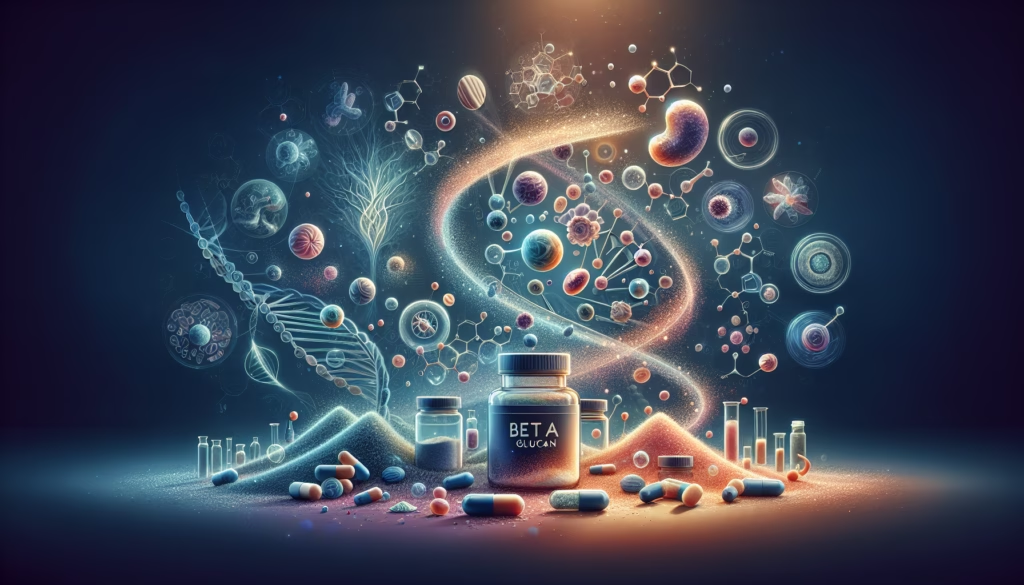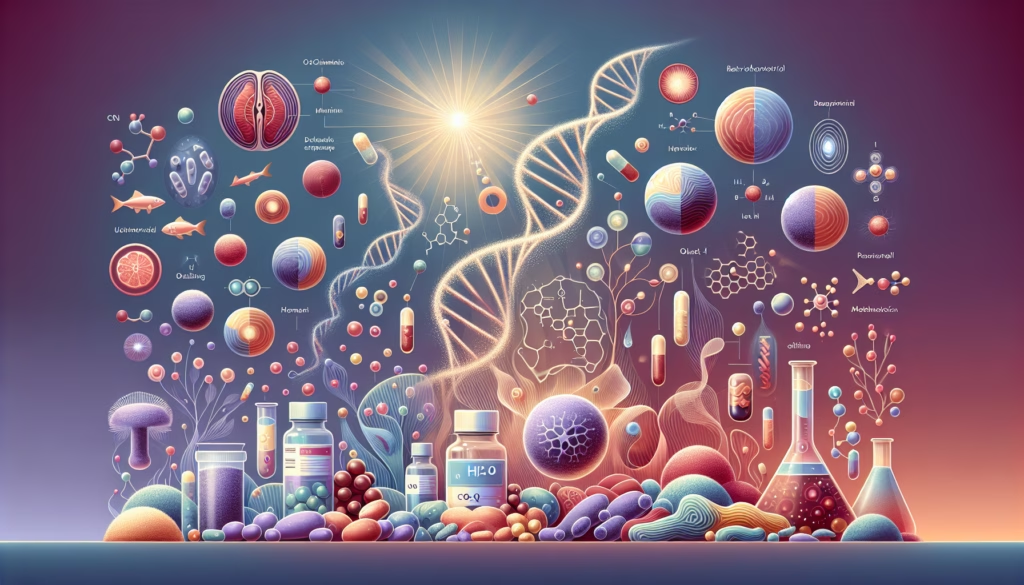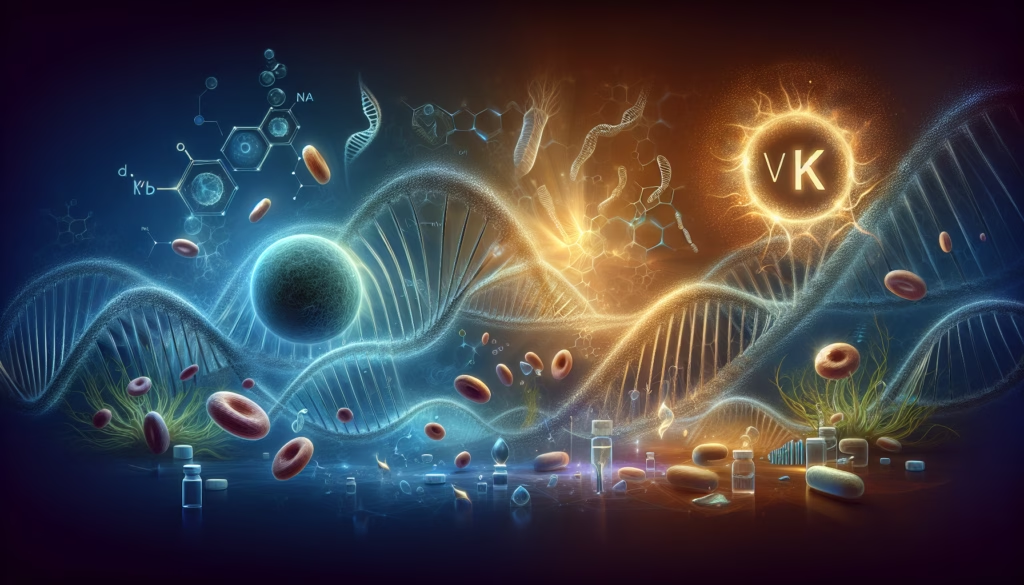
Beta Glucan
Discover the science-backed potential of beta glucan as an adjunct in cancer therapy. This post delves into the latest research
Click 
Berberine exerts its anti-cancer effects through complex molecular mechanisms, with the primary action being inhibition of mitochondrial respiratory chain complex I. This inhibition leads to a decrease in ATP production, mimicking a state of metabolic stress and activating the AMP-activated protein kinase (AMPK). AMPK, a key energy sensor in cells, promotes catabolic pathways like glucose uptake and fatty acid oxidation while inhibiting anabolic processes such as protein and lipid synthesis, ultimately suppressing tumour cell growth and proliferation. Research suggests Berberine’s anti-cancer properties include:
1. Inducing apoptosis (programmed cell death)
2. Inhibiting angiogenesis (formation of new blood vessels that supply tumours)
3. Modulating cell cycle progression
4. Reducing inflammation
5. Enhancing the efficacy of conventional chemotherapy drugs.
Studies have shown Berberine’s efficacy against various cancer cell lines, including breast, colon, lung, ovarian, and prostate cancer. For instance, a study published in the journal ‘Oncotarget’ in 2016 demonstrated that Berberine inhibited the proliferation and induced apoptosis in human breast cancer cells by suppressing the mTOR signalling pathway, a key regulator of cell growth and proliferation often dysregulated in cancer. While promising, it’s crucial to distinguish between in vitro and in vivo studies. Many of Berberine’s anti-cancer effects are observed in cell cultures and animal models. Further research, including randomised controlled trials, is needed to confirm these findings in humans and establish optimal dosing regimens. Relating to the metabolic theory of cancer, Berberine’s impact on mitochondrial function aligns with the concept of targeting cancer cell metabolism. By disrupting energy production in mitochondria, Berberine potentially exploits a vulnerability in cancer cells, which often rely heavily on glycolysis (breakdown of glucose) even in the presence of oxygen, a phenomenon known as the Warburg effect. This metabolic reprogramming is considered a hallmark of cancer, and targeting it represents a promising approach in cancer therapy.
Dosage recommendations for Berberine in cancer treatment are not yet established. Clinical trials investigating Berberine for cancer are currently in early phases and haven’t yet defined optimal doses. However, for other conditions like diabetes and high cholesterol, typical dosages range from 900-1500 mg per day, divided into 2-3 doses. It’s crucial to note that these dosages may not be applicable for cancer treatment, and any use of Berberine for cancer should be under strict medical supervision.
Breast Cancer, Colorectal Cancer, Lung Cancer, Ovarian Cancer, Prostate Cancer
Berberine is generally well-tolerated at lower doses (500-1000mg/day). However, higher doses or prolonged use may lead to gastrointestinal discomfort, including:
– Diarrhoea
– Constipation
– Bloating
– Stomach cramps
– Nausea
– Vomiting.
Some individuals may experience more severe side effects, such as:
– Headaches
– Skin rashes
– Low blood pressure
– Liver enzyme abnormalities.
Drug interactions are possible, particularly with medications metabolised by the liver enzymes CYP3A4, CYP2D6, and CYP2C9. Berberine may also interact with medications affecting blood sugar levels, potentially causing hypoglycaemia when combined with anti-diabetic drugs.
Research on Berberine’s potential in combination therapies, especially within a metabolic approach to cancer treatment, is ongoing. Preclinical studies suggest synergistic effects when combined with conventional chemotherapy drugs, potentially enhancing efficacy and reducing drug resistance.
Some promising combinations include:
1. Berberine + Doxorubicin: Enhanced anti-tumour effects in breast cancer models
2. Berberine + Cisplatin: Improved efficacy in ovarian cancer cells
3. Berberine + 5-Fluorouracil: Increased cytotoxicity in colorectal cancer cells.
However, clinical evidence in humans is limited. Ongoing clinical trials are exploring these combinations to determine optimal dosing, safety profiles, and efficacy in cancer warriors.
US National Library of Medicine research on Berberine: US National Library of Medicine
Europe PMC research on Berberine: Europe PMC
Pubmed research on Berberine: Pubmed
Limited data is available on the specific impact of Berberine on the quality of life in cancer warriors. While some studies suggest potential benefits in reducing chemotherapy-induced side effects, comprehensive quality of life assessments in cancer-specific Berberine trials are lacking. However, based on its known effects and studies in other conditions, Berberine may potentially impact:
1. Fatigue: By improving energy metabolism and mitochondrial function
2. Gastrointestinal symptoms: Both positive (anti-diarrheal effects) and negative (potential GI discomfort) impacts
3. Metabolic parameters: Potential improvements in blood sugar and lipid levels, which may benefit overall well-being
4. Weight management: Possible positive effects on body composition.
Further research, including dedicated quality of life assessments in cancer clinical trials, is needed to fully understand Berberine’s impact.
We’ve done our best to include as much information as possible for this supplement.
If you have any other questions, please send us a message or join our Skool Group and ask our knowledgeable and friendly community.
Berberine is generally available as a dietary supplement in the UK, EU, USA, Australia, and NZ.
However, regulatory classifications and specific regulations may vary:
– USA: Classified as a dietary supplement, regulated by the FDA under DSHEA
– EU: Considered a novel food ingredient, requiring safety assessment
– UK: Available as a food supplement
– Australia/NZ: Regulated as a complementary medicine by the TGA.
It’s crucial to purchase supplements from reputable sources to ensure quality and safety.
While specific data from large-scale clinical trials is not yet available, preclinical and early clinical studies have provided some insights into cancer warriors demographics that may benefit from Berberine in cancer treatment:
1. Age: Most studies focus on adult populations, typically 18-75 years old.
2. Cancer types: Primarily investigated in solid tumors, especially breast, colorectal, and lung cancers.
3. Stage: Early research has included cancer warriors with various stages, from early to advanced disease.
4. Comorbidities: Cancer warriors with metabolic disorders like diabetes or obesity may be of particular interest due to Berberine’s metabolic effects.
More comprehensive demographic data will emerge as larger clinical trials are conducted.
The mechanisms of potential resistance to Berberine in cancer cells are not fully understood. However, research has identified several potential pathways that may contribute to resistance:
1. Efflux pumps: Overexpression of multidrug resistance proteins (e.g., P-glycoprotein) may reduce intracellular Berberine concentrations.
2. Metabolic adaptation: Cancer cells may develop alternative metabolic pathways to bypass Berberine’s effects on AMPK and energy metabolism.
3. Activation of survival pathways: Upregulation of anti-apoptotic proteins or activation of pro-survival signaling cascades may counteract Berberine’s pro-apoptotic effects.
4. Epigenetic modifications: Changes in DNA methylation or histone modifications may alter gene expression patterns, potentially leading to resistance.
Numerous preclinical studies have investigated Berberine’s anti-cancer properties in vitro and in vivo. These studies, conducted by various research institutions globally, have explored Berberine’s effects on different cancer cell lines and animal models.
Key findings often highlight Berberine’s ability to:
1. Inhibit cell proliferation in various cancer types (e.g., breast, colon, lung, prostate)
2. Induce apoptosis through multiple pathways (e.g., mitochondrial, death receptor-mediated)
3. Suppress tumour growth in xenograft models
4. Inhibit metastasis by reducing cell migration and invasion
5. Enhance the efficacy of conventional chemotherapy drugs.
Notable preclinical studies include:
– Wang et al. (2014) demonstrated Berberine’s ability to inhibit colorectal cancer growth through AMPK activation and mTOR inhibition in both cell culture and mouse models.
– Liu et al. (2016) showed Berberine’s potential in overcoming tamoxifen resistance in breast cancer cells by modulating the EGFR/HER2 signalling pathway.
Information on active clinical trials can be found on platforms like ClinicalTrials.gov using the search term ‘Berberine’ and specifying cancer as the condition. As of 2025, most Berberine cancer trials are in early phases:
– Phase I: Safety and dosage studies
– Phase II: Small-scale efficacy studies.
No Phase III trials for Berberine in cancer treatment have been registered yet, indicating that while promising, research is still in early stages.
Research on specific genetic markers that may predict response to Berberine in cancer treatment is limited. However, some studies have identified potential genetic factors that could influence Berberine’s efficacy:
1. AMPK pathway genes: Variations in genes encoding AMPK subunits (e.g., PRKAA1, PRKAA2) may affect Berberine’s activation of AMPK.
2. Metabolic genes: Polymorphisms in genes involved in glucose and lipid metabolism (e.g., PPARG, SREBF1) could influence Berberine’s metabolic effects.
3. Drug-metabolising enzymes: Genetic variations in CYP450 enzymes may affect Berberine’s metabolism and bioavailability.

Discover the science-backed potential of beta glucan as an adjunct in cancer therapy. This post delves into the latest research

Explore the emerging world of hydrogen gas (H₂), also known as Brown Gas, and its remarkable potential as an adjunct

Explore the latest scientific insights into vitamin K2 and its promising role in cancer therapy. In this comprehensive blog post,
Apoptosis, or programmed cell death, is a natural process where cells self-destruct when they are damaged or no longer needed. This is crucial for maintaining healthy tissues and preventing diseases like cancer.
Drugs and supplements that induce apoptosis help eliminate cancerous cells by triggering this self-destruct mechanism, ensuring that harmful cells are removed without damaging surrounding healthy tissue.
Understanding and harnessing apoptosis is vital in the fight against cancer, as it targets the root cause of the disease at the cellular level.
Cell proliferation is the process by which cells grow and divide to produce more cells. While this is essential for growth and healing, uncontrolled cell proliferation can lead to cancer.
Drugs and supplements that inhibit cell proliferation help prevent the rapid multiplication of cancerous cells, slowing down or stopping the progression of the disease.
By targeting the mechanisms that drive cell division, these treatments play a vital role in controlling and potentially eradicating cancer.
Cancer cells often hijack specific biological pathways to grow and spread. Drugs and supplements that target these pathways can disrupt the cancer cell’s ability to survive and multiply.
By focusing on the unique mechanisms that cancer cells use, these treatments can be more effective and cause fewer side effects compared to traditional therapies.
Targeting specific pathways is a key strategy in precision medicine, offering a tailored approach to combat cancer at its core.
Angiogenesis is the process by which new blood vessels form, supplying nutrients and oxygen to tissues. Cancer cells exploit this process to fuel their growth and spread.
Drugs and supplements that inhibit angiogenesis can effectively starve cancer cells by blocking the formation of these new blood vessels.
By cutting off the supply lines that tumors rely on, angiogenesis inhibitors play a crucial role in controlling and potentially shrinking cancerous growths.
Immunotherapy harnesses the power of the body’s immune system to combat cancer. By boosting or restoring the immune system’s natural ability to detect and destroy cancer cells, immunotherapy offers a targeted and effective approach to treatment.
Drugs and supplements that support immunotherapy can enhance the immune response, making it more efficient at identifying and attacking cancer cells.
This innovative approach not only helps in treating cancer but also reduces the risk of recurrence, providing a powerful tool in the fight against this disease.
Inflammation is the body’s natural response to injury or infection, but chronic inflammation can contribute to the development and progression of cancer.
Drugs and supplements with anti-inflammatory properties help reduce inflammation, thereby lowering the risk of cancer and other chronic diseases.
By targeting the inflammatory processes, these treatments can help maintain a healthier cellular environment and prevent the conditions that allow cancer to thrive.